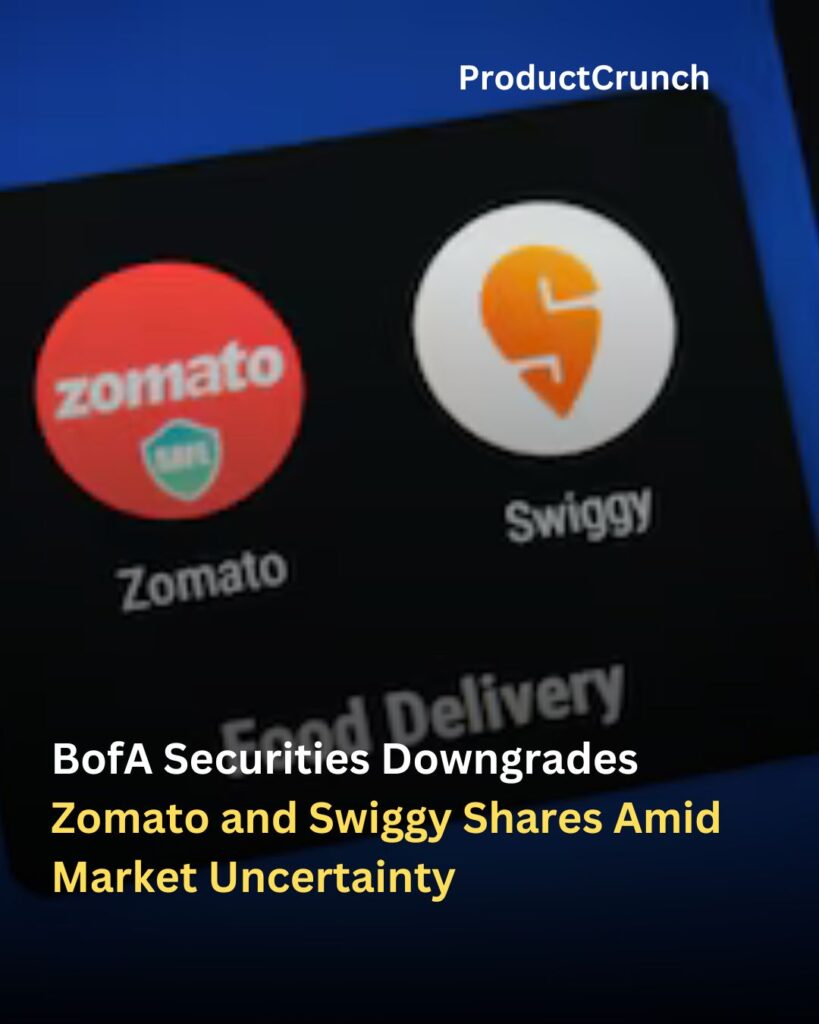Food delivery giants Zomato and Swiggy have faced a downgrade from BofA Securities, reflecting growing concerns over profitability, market competition, and economic slowdown. The move has raised questions about the future growth trajectory of India’s online food delivery industry.
Why Did BofA Securities Downgrade Zomato & Swiggy?
The downgrade was primarily due to three key factors:
📉 Profitability Challenges – Despite revenue growth, both companies struggle to maintain consistent profitability amid high operational costs and thin margins.
⚔️ Intensifying Competition – The rise of quick-commerce platforms and increasing competition from Dunzo, Zepto, and Amazon Fresh is pressuring Swiggy and Zomato’s market share.
📊 Macroeconomic Concerns – Rising inflation and reduced discretionary spending are impacting customer order volumes, affecting revenue growth.
Market Reaction to the Downgrade
Following the downgrade:
🔻 Zomato’s stock price saw a decline, reflecting investor concerns over long-term profitability.
⚠️ Swiggy, being privately held, faces increased scrutiny from potential investors ahead of its expected IPO.
Can Zomato & Swiggy Overcome These Challenges?
To regain investor confidence, both companies are focusing on:
✅ Expanding Quick-Commerce & Grocery Deliveries – Strengthening Swiggy Instamart and Zomato’s Blinkit operations.
✅ Cost Optimization – Reducing operational inefficiencies and improving order fulfillment.
✅ Premium Subscription Services – Growing Zomato Gold and Swiggy One to drive customer loyalty and revenue stability.
Final Thoughts
While Zomato and Swiggy remain dominant players in India’s food delivery space, the BofA Securities downgrade signals the need for financial discipline and long-term sustainability. Investors will be closely watching how these companies adapt to changing market dynamics and competitive pressures in the coming months. 🍔📉



